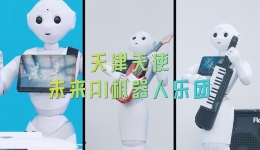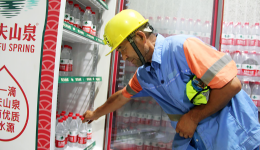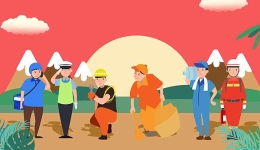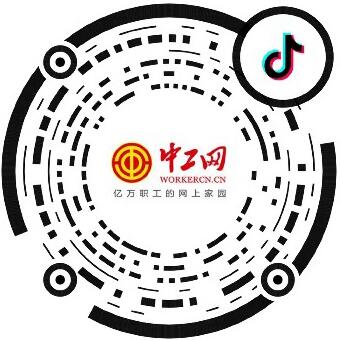Original title: Food waste treatment in small and medium-sized cities needs to improve quality and efficiency
With the acceleration of urbanization and the improvement of people's living standards, the production of food waste is also growing. How to effectively deal with food waste and improve the living environment is a concern of the whole society. The author found through investigation in some small and medium-sized cities in northwest Hubei that in the process of promoting the management of food waste in many places, due to insufficient overall planning, insufficient capital investment, lagging construction management and other reasons, the actions of the whole process of classified discharge, collection, transportation and treatment of food waste are not coordinated enough, and the management of food waste has always been in a state of inefficient operation, with impressive results, which are shown in:
First, the collection efficiency is low. From the perspective of clearing mode, the recycling efficiency of the transport vehicle itinerant clearing mode is high, but the residents' acceptance is not high due to the unreasonable setting of dropping points, imperfect facilities, and inconvenient operation; From the perspective of collection and transportation mechanism, the government subsidy is a strong support to maintain the operation of the food waste treatment system, and the market-oriented recovery and disposal mechanism has not yet been formed. Therefore, the disposal enterprises are not active enough to collect and transport food residues. From the perspective of residents' awareness, residents have insufficient awareness of the hazards of food waste, and their awareness of recycling is not strong. They often discard food waste with other waste.
Second, the governance benefits are low. Food waste is mostly treated by landfill, incineration, fermentation, compost and other treatment methods. The process operation cost is high, and the by-products obtained after treatment have low utilization value. Most food waste treatment enterprises do not completely deal with food waste, and the liquid part of food waste still needs to be treated by the urban sewage treatment system. After the construction and operation of some kitchen waste treatment facilities, they have been in a state of "not enough to eat" and "not good to eat" for a long time, and the business scale cannot pass the break even point. Compared with the large initial investment, it is difficult to achieve profitability.
Third, the management efficiency is low. In small and medium-sized cities, a small number of large-scale catering businesses and a large number of small restaurants make daily supervision more difficult. After rectification, the collection and transportation of folk food waste has not disappeared, and only sorting and recycling "gutter oil" is still profitable; The supervision information platform needs to be established and improved, and it is difficult to realize real-time monitoring of food waste generation, collection, transportation, disposal and other related information. When law enforcement departments investigate and deal with food waste collection, transportation, treatment and other acts without authorization, the law enforcement effect is not ideal because most of the illegal acts occur in the middle of the night, early in the morning and other weak time of law enforcement.
Food waste is the main domestic waste in small and medium-sized cities. Some experts estimate that food waste accounts for more than 40% of urban domestic waste. Strengthening the management of food waste is related to the urban ecological environment, the health of residents and the high-quality development of the city. To improve the quality and efficiency of food waste management, we need to improve management. The author has the following suggestions.
Strengthen the top design. Improve the planning of food waste treatment facilities, orderly build food waste recycling treatment facilities, and gradually improve the efficiency of centralized collection, transportation and disposal of food waste. In accordance with the principle of "who produces, who pays", establish and improve the payment collection, transportation and disposal mechanism of food waste. Establish a PPP operation mode for food waste treatment. If the fees paid by enterprises and residents are not enough to cover the cost of food waste treatment at the source, a franchise management system can be established, government procurement, subsidies, tax relief and other measures can be introduced, and subsidies or direct investment and equity participation measures can be taken.
Strengthen technology development. Strengthen the application research of "oil, water and residue" separation or "biological treatment of food waste" and other technologies in food waste, improve the disposal capacity and process level of food waste, and ensure that all kinds of pollution are properly treated; Explore ways of harmless treatment and resource utilization of residues, waste liquids and other wastes after food waste disposal, establish a food waste treatment model that is operable, replicable, and suitable for regional food waste characteristics according to local conditions, and promote the separation of food waste sources, actual reduction, and resource utilization.
Strengthen source control. Catering units are required to set up oil-water separation devices or oil-water isolation pools and other facilities that meet the requirements, and set up separate collection containers. Strengthen the standardized management of food processing and catering service units' food waste account and transfer manifest, grasp the changes of food waste in a timely manner, and ensure that food waste is "collected in full". Optimize the transportation network, reasonably arrange the collection frequency, time and route, and promote the "vehicle barrel loading, barrel changing and direct transportation" and the fixed point timing and off peak collection. Strengthen the management of transport vehicles and transport in a closed manner to prevent secondary pollution.
Strengthen normal supervision. Strengthen the effective monitoring of all links of food waste management, ensure that the flow direction of food waste treatment is clear, clear and verifiable, and do a good job in the flow management of other chemical oil utilization and production. Strengthen law enforcement and guarantee, strengthen daily supervision, investigate and deal with food waste generating units' illegal activities such as food waste collection, transportation and disposal without permission, food waste disposal units' illegal sewage discharge, food producers' illegal activities such as edible oil or food production and processing with food waste as raw materials, and ensure the orderly collection, transportation and disposal of food waste.
(Authors: Zheng Ying, Yicheng Highway Administration Bureau, Hubei Province; Yang Mingsheng, Yicheng Housing and Urban Rural Development Bureau, Hubei Province; Li Jinliang, Yicheng Urban Management and Law Enforcement Bureau, Hubei Province)













